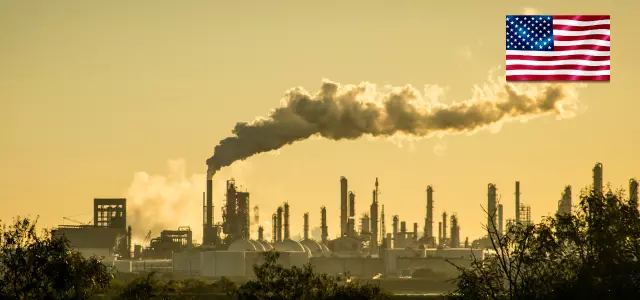
This article originally ran on Forbes.com on November 19, 2024. All rights reserved.
Daniel B. Markind is a Forbes.com energy column contributor. The views expressed in this article are not to be associated with the views of Flaster Greenberg PC.
In 2019, the New York State Department of Environmental Conservation denied a Section 401 Clean Streams Certification for the Northeast Supply Enhancement Pipeline (NESE). NESE would have connected the natural gas fields of Northeastern Pennsylvania with the New York City metropolitan area, by far the most populous region in the United States. Shortly thereafter, the New Jersey Department of Environmental Protection followed suit, as the pipeline would have run through Raritan Bay from New Jersey to New York City.
Both then-New York Governor Andrew Cuomo and New Jersey Governor Phil Murphy cited environmental concerns for their decisions. However, as a result, each of New York and New Jersey remains dependent on foreign sources for their energy needs, including at times even Russia (which actually sent gas to New England and the mid-Atlantic regions as recently as 2018). (Source)
Each Governor had a plan to replace fossil fuels with renewable energy, but each plan has run into significant problems and delays, many of which could have been, and in fact were, to be expected. Governor Cuomo intended to bring in lots of hydroelectric power from Quebec, but that would mean building over 300 miles of new transmission lines through some pristine and environmentally sensitive areas connecting that Canadian Province with upper New York State. Meanwhile, in New Jersey, Governor Murphy has been trying to massively increase wind power off the Jersey Shore, but that plan, also to be expected, has met huge resistance from wealthy vacation and other influential property owners in Shore communities, and is also having trouble finding a manufacturer for the blades necessary for its turbines. (Source)
Specifically, the entire offshore wind industry has been dealing with the after effects of the wind turbine failure that occurred this past July in Nantucket, resulting in the entire beach having to be closed while the turbine washed onto the shore as it broke into pieces in the ocean. (Source)
Governor Murphy, in particular, has been uncompromising in his climate vision. Despite polls showing him initially with an overwhelming lead and a challenger without any name recognition, Murphy almost lost his reelection bid in 2021. Notwithstanding that narrow victory, Murphy made clear that he would continue full bore with his climate agenda. (Source)
Andrew Cuomo’s successor, Kathy Hochul, has not been far behind. In 2023, she claimed that “New York continues to set the pace for our nation’s transition to clean energy.” (Source) She announced that New York would make the largest investment in American history in renewable energy, seeking 6.4 gigawatts that is expected to power 2.6 million New York homes by 2030.
Unfortunately, aggressive plans to transition quickly and smoothly from fossil fuels to renewable energy have rarely proven to be successful in actual implementation, as countries as varied as Germany and Sri Lanka can attest. Now, with Donald Trump in the White House and talking about the “Green New Steal,” there likely will be little federal support for either of New Jersey’s or New York’s climate policies. The 2024 election has shown that climate policy ranks very low on the priority list of most Americans. Will New York voters accept the proposed three offshore wind projects any more readily than New Jersey voters have accepted theirs? Will New York voters grant the zoning and land use permits to transmit any energy generated by renewable sources to the ultimate end users? In 2013 the New York Court of Appeals – in the highest court in the State – granted municipalities broad power to deny, by land use regulations, State energy policy (see Wallach v. Town of Dryden, 23 N.Y.3d 728, 16 N.E.3d 1188 (2014). Now New York renewable advocates may find this decision coming back to haunt them as local municipalities might refuse to grant the very permits needed to transmit renewable energy, regardless of any policies supporting the State’s goals.
Governors Murphy and Hochul are not alone. In Michigan, Governor Gretchen Whitmer has taken aggressive policies to try to close long existing international oil and gas pipelines between that State and Canada. (Source)
Whitmer has gone so far as to attempt to breach American international treaties with Canada that were long ago approved by the United States Senate. Meanwhile, other governors have attempted to stop lithium mining (necessary for batteries that store renewable energy) and have taken other actions that they claim are pro-environment but have the effect of making energy storage and transition difficult if not impossible. (Source)
As Trump prepares for his second term, state governors who wish to continue facilitating the transition from fossil fuels to clean energy are increasingly going to need to reconsider many of their policies. To those who have gone heavy into renewable energy, they must make their own judgments and prioritizations as they are unlikely to receive the level of support that they have grown accustomed to receiving from the current (Biden) Administration. Although not all Republicans or Trump voters agree that climate change is a hoax, many do believe that elected representatives have simply gone too far in pushing for Green Energy policies that they fear will produce minimal results yet incur massive societal, political, and economic costs. An honest conversation on energy is needed now more than ever. Let’s hope it starts soon.

